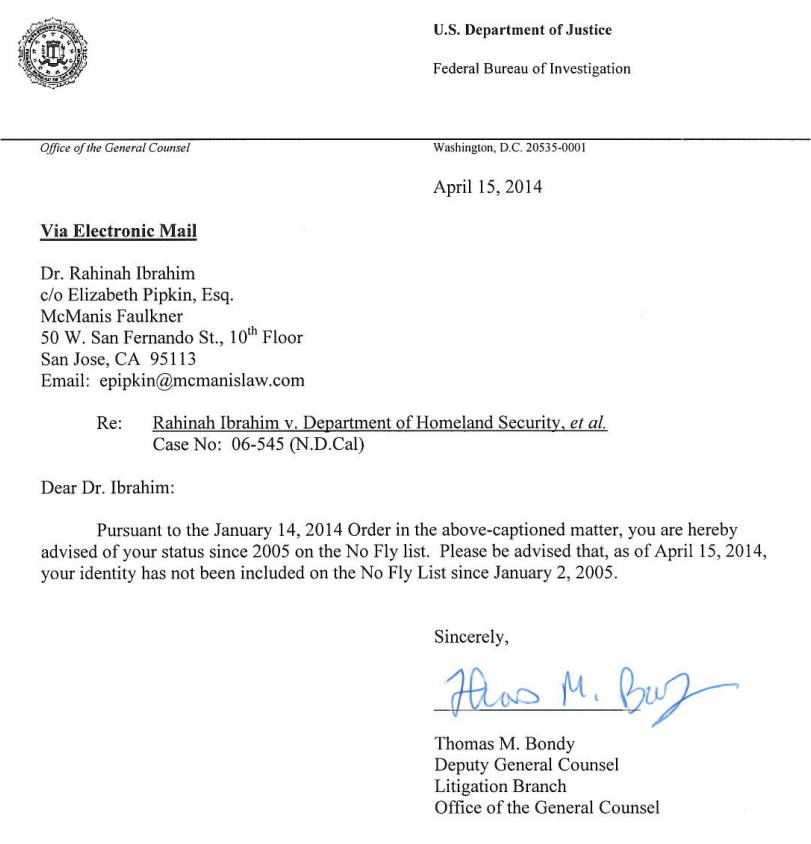TSA includes all air travelers in pre-crime profiling
Since late last year, we’ve gotten several inquires from readers wondering why they got a boarding pass marked “TSA Pre-Check” or were sent through the “Pre-Check” lane at a TSA checkpoint even though they hadn’t participated in the “TSA Pre-Check Application Program”.
The confusion stems from the TSA’s own misleading publicity about the program, which tries to persuade travelers “voluntarily” to provide additional information to be used by the TSA, in exchange for the hope of being subjected to slightly less intrusive searches at TSA checkpoints.
The logical (but wrong) inferences are that TSA Pre-Check is a members-only program, and that the Pre-Check lane at a TSA checkpoint is only for those travelers who have “applied” and been “accepted” into the program.
There are actually three distinct components to “TSA Pre-Check” as a pre-crime scheme:
- “Voluntary” submission and collection of additional personal information about those travelers who chose to participate in the TSA Pre-Check Application Program.
- Pre-crime profiling of all travelers and determination of a “risk assessment” score for each traveler, based on all information available to the TSA including the information, if any, submitted through the TSA Pre-Check Application Program.
- Graduated treatment of travelers at TSA checkpoints, including searches of varied intrusiveness and potential total denial of passage, on the basis of these risk assessments and other secret algorithms.
Only the application component of the program — the submission of additional personal information by travelers to the TSA — is voluntary. The TSA obtains information from various sources about all travelers. All travelers are profiled. All travelers are assigned risk assessment (pre-crime) scores based on whatever information is available to the TSA. All travelers are subjected to a more or less intrusive search, and may or may not be allowed to pass through the checkpoint, on the basis of these scores and other secret factors.
Some travelers who are assigned sufficiently low risk assessment scores and meet other secret criteria are directed to the “Pre-Check” lane and subjected to slightly less intrusive searches, regardless of whether they participated in the TSA Pre-Check Application Program. The TSA calls this process “managed inclusion” in TSA Pre-Check.
A traveler whose risk assessment score is low enough, and who meets the other secret criteria (again, regardless of whether they participated in the TSA Pre-Check Application Program) can be selected for less intrusive search when she applies for a boarding pass. The TSA’s assignment of such a traveler to the Pre-Check lane is sent to the airline with, or as part of, the permission message or Boarding Pass Printing Result (BPPR) for that traveler sent to the airline by the TSA.
The TSA’s Pre-Check designation is printed on the boarding pass and included in a 2D bar code in IATA-standard format. “For flights originating in the USA, the digital signing of barcodes and the management of security certificates and key pairs is required by the TSA.”
The TSA also assigns some travelers to Pre-Check lanes on the spot at its checkpoints, using secret criteria and techniques including a randomizer app (like the magical Sorting Hat at Hogwarts) to determine how intrusively to search each person.
Through this process, the TSA chooses one of four basic levels of search and seizure for each traveler:
- “TSA Pre-Check” (slightly less intrusive search)
- “Standard screening” (including virtual strip-search or manual groping)
- “Secondary screening” (more intrusive search including more thorough groping)
- “No-fly” (denial of the right to travel by common carrier, possibly accompanied by other adverse actions)
There are refinements within these basic categories. In a document filed with the court following the trial of Dr. Rahinah Ibrahim’s lawsuit challenging her placement on the no-fly list, the government disclosed that that each entry in the Terrorist Screening Database (which includes the no-fly list and the list of “selectees” for secondary screening) includes a “handling code” indicating what airline and checkpoint personnel should do if that person attempts to check in for a flight or pass though a TSA checkpoint.
We don’t know how many handling codes there are. But according to the government’s court filing:
[FBI Agent] Kelley designated Dr. Ibrahim as “handling code 3.” … [T]he majority of individuals in the TSDB were assigned handling codes 3 or 4…. Defendants state that the advantages of Handling Code 3 include allowing law enforcement officers to ask the individual probing but non-alerting questions, and searching the individual’s passport [REDACTED].”
Presumably, other handling codes include those that tell airline or checkpoint personnel to attempt to detain the traveler and contact local law enforcement agencies, the FBI, or the Terrorist Screening Center.
You can’t “opt out” of pre-crime profiling by choosing not to participate in the TSA Pre-Check Application Program. You will be profiled, on a per-flight basis, every time you try to fly.
“Anything you say may be used against you,” although the TSA doesn’t say this on the TSA Pre-Check application forms. If you participate in the Pre-Check Application Program, the additional information you provide will be added to the other inputs to the TSA’s black box. It might result in the TSA assigning you a lower risk score, and subjecting you to a less intrusive search. Or it might result in the TSA assigning you a higher score, and searching you more intrusively or preventing you from traveling by air.

